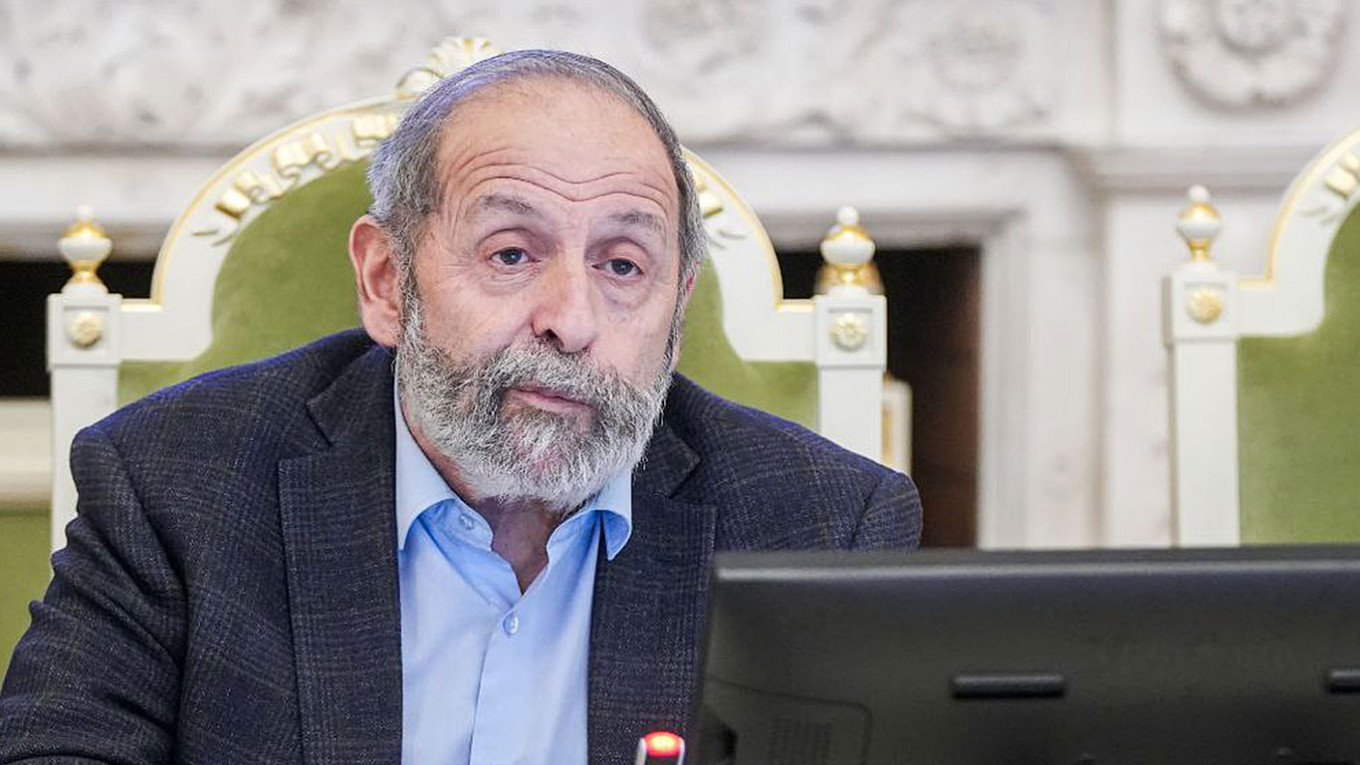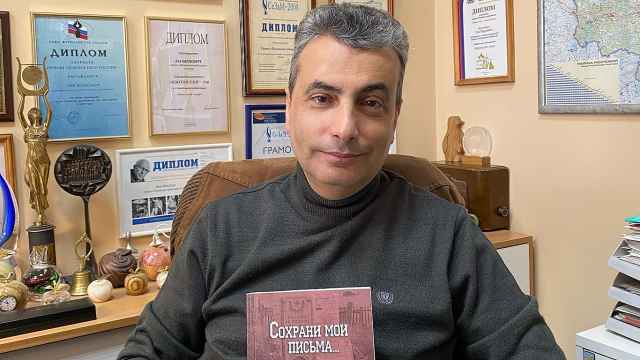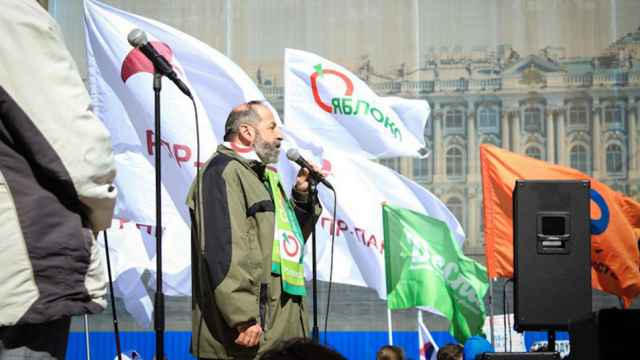Prominent St. Petersburg opposition politician Boris Vishnevsky said Wednesday that he plans to challenge his recent designation as a “foreign agent” in court.
Vishnevsky, a member of the liberal Yabloko party, is among the few high-profile opposition voices to have stayed in Russia following the 2022 invasion of Ukraine.
Russia’s Justice Ministry labeled him a “foreign agent” late last week on the grounds that he opposes the invasion of Ukraine and regularly contributes commentary and written pieces for foreign media.
“I view the Justice Ministry’s decision not only as a personal insult, but also an insult to my voters, and I’ll prove its complete unlawfulness in court,” Vishnevsky, who serves in the St. Petersburg legislative assembly, said on his Telegram channel.
“I’m a Russian deputy and a Russian politician, I represent solely the interests of my constituents, the citizens of Russia,” he added. “I’m not under any external influence, I’m influenced only by the Russian Constitution.”
Vishnevsky was charged with “discrediting” the Russian military in late 2022, but a judge sent his case back to the Interior Ministry over unspecified procedural violations.
Earlier Wednesday, St. Petersburg’s legislative assembly voted to strip the Yabloko deputy of two committee seats.
Assembly speaker Alexander Belsky introduced Vishnevsky as a “foreign agent” during the session's opening roll call, while local media circulated photographs of a “foreign agent” label on his nameplate.
Vishnevsky decried Russia’s foreign agents legislation as having “nothing to do with foreign funding or working for foreign organizations and states.”
“Now it’s just a reaction to a public political position,” he wrote.
Russia's “foreign agents” law has been gradually expanded since it was first passed in 2012, a move that officials said was a response to similar legislation in the United States.
Individuals and entities named “foreign agents” are subject to rigorous self-disclosure and auditing requirements.
A Message from The Moscow Times:
Dear readers,
We are facing unprecedented challenges. Russia's Prosecutor General's Office has designated The Moscow Times as an "undesirable" organization, criminalizing our work and putting our staff at risk of prosecution. This follows our earlier unjust labeling as a "foreign agent."
These actions are direct attempts to silence independent journalism in Russia. The authorities claim our work "discredits the decisions of the Russian leadership." We see things differently: we strive to provide accurate, unbiased reporting on Russia.
We, the journalists of The Moscow Times, refuse to be silenced. But to continue our work, we need your help.
Your support, no matter how small, makes a world of difference. If you can, please support us monthly starting from just $2. It's quick to set up, and every contribution makes a significant impact.
By supporting The Moscow Times, you're defending open, independent journalism in the face of repression. Thank you for standing with us.
Remind me later.






